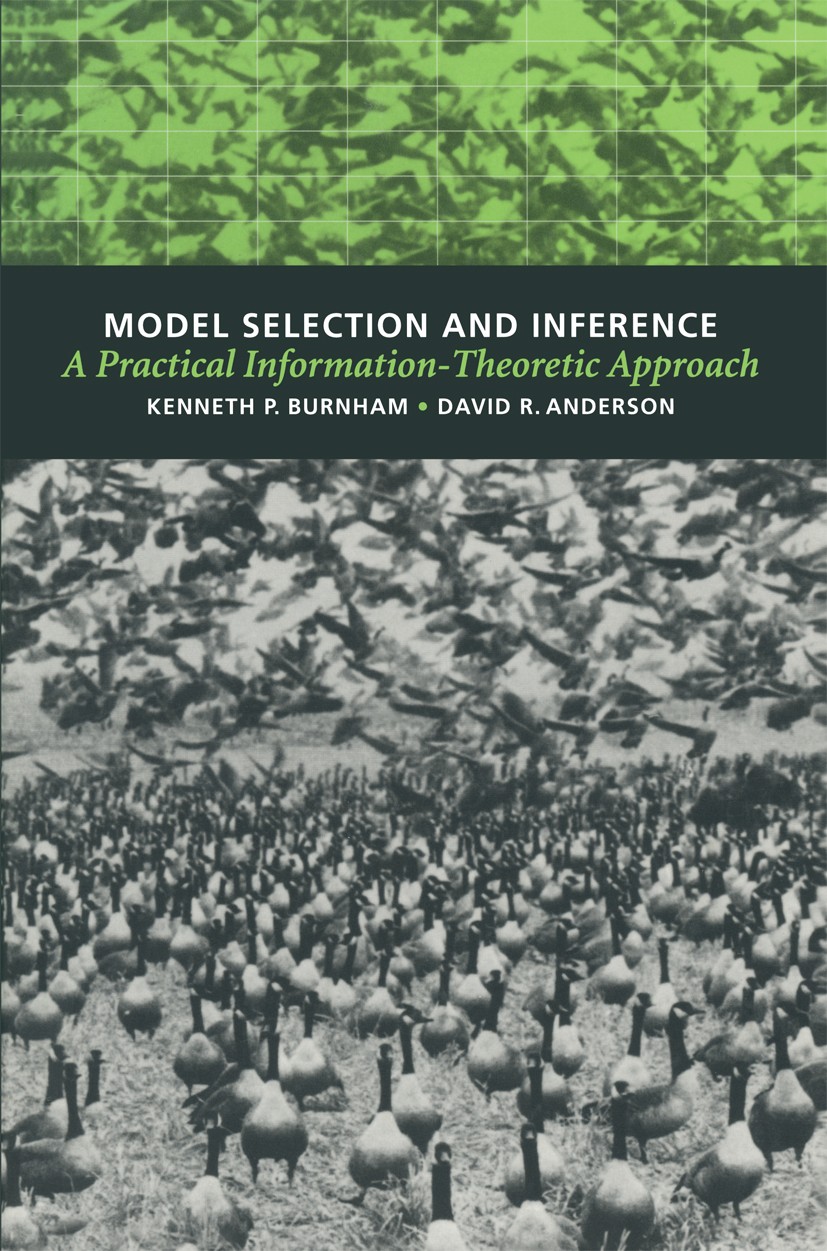| 書目名稱 | Model Selection and Inference | | 副標(biāo)題 | A Practical Informat | | 編輯 | Kenneth P. Burnham,David R. Anderson | | 視頻video | http://file.papertrans.cn/636/635798/635798.mp4 | | 圖書封面 |  | | 描述 | We wrote this book to introduce graduate students and research workers in var- ious scientific disciplines to the use of information-theoretic approaches in the analysis of empirical data. In its fully developed form, the information-theoretic approach allows inference based on more than one model (including estimates of unconditional precision); in its initial form, it is useful in selecting a "best" model and ranking the remaining models. We believe that often the critical issue in data analysis is the selection of a good approximating model that best represents the inference supported by the data (an estimated "best approximating model"). In- formation theory includes the well-known Kullback-Leibler "distance" between two models (actually, probability distributions), and this represents a fundamental quantity in science. In 1973, Hirotugu Akaike derived an estimator of the (relative) Kullback-Leibler distance based on Fisher‘s maximized log-likelihood. His mea- sure, now called Akaike ‘s information criterion (AIC), provided a new paradigm for model selection in the analysis of empirical data. His approach, with a funda- mental link to information theory, is relatively simple an | | 出版日期 | Book 19981st edition | | 關(guān)鍵詞 | Inference; Likelihood; Model Selection; data analysis; information theory; optimization; statistics | | 版次 | 1 | | doi | https://doi.org/10.1007/978-1-4757-2917-7 | | isbn_ebook | 978-1-4757-2917-7 | | copyright | Springer Science+Business Media New York 1998 |
The information of publication is updating

|
|
 |Archiver|手機(jī)版|小黑屋|
派博傳思國(guó)際
( 京公網(wǎng)安備110108008328)
GMT+8, 2025-11-3 00:13
|Archiver|手機(jī)版|小黑屋|
派博傳思國(guó)際
( 京公網(wǎng)安備110108008328)
GMT+8, 2025-11-3 00:13


